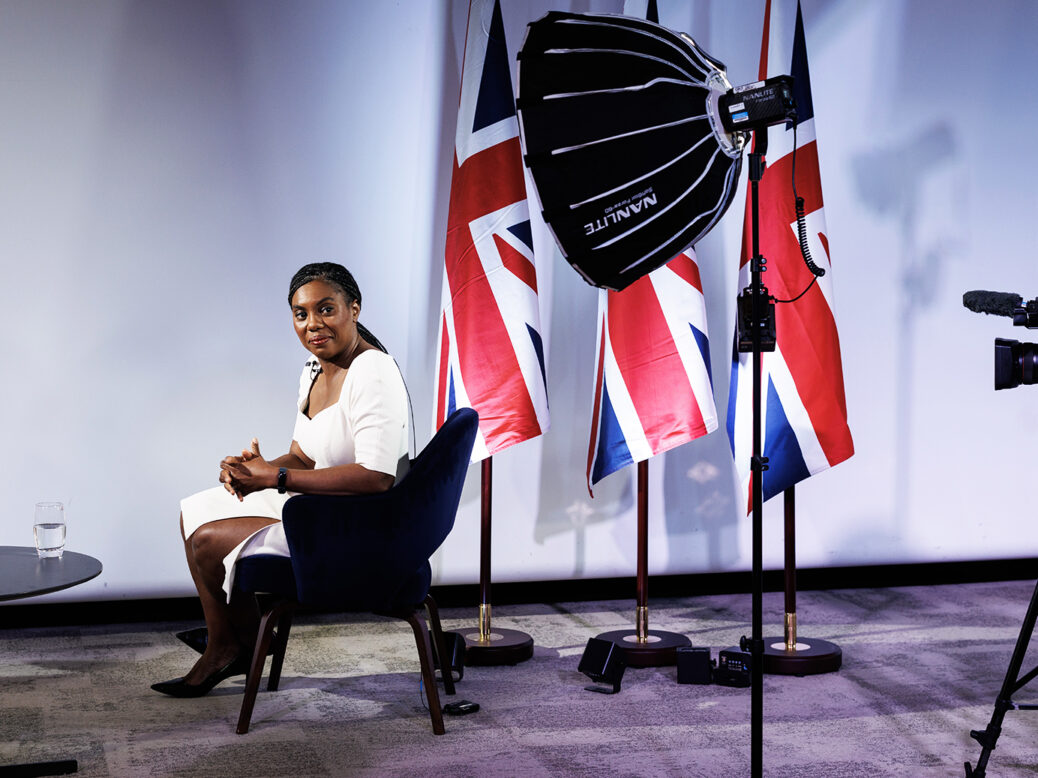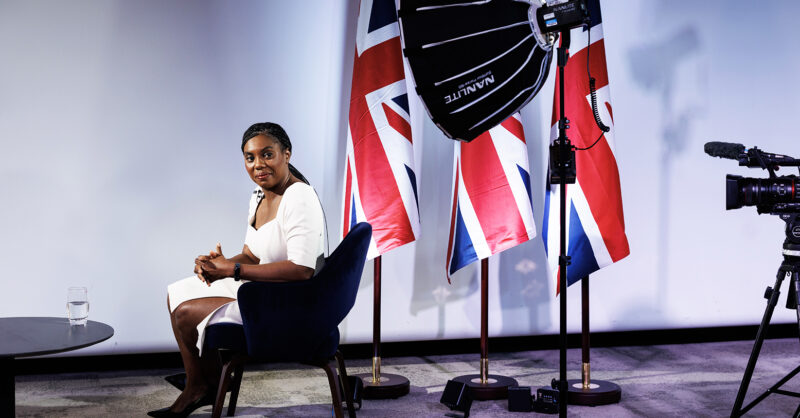
Photo by Dan Kitwood/Getty Images
In an attention economy, finding ways to grab the headlines is a political necessity. That’s how to read Kemi Badenoch’s Monday night warning that the UK could “end up going to the IMF, cap-in-hand” if worrying economic trends aren’t averted.
It’s not hard to work out what the Tory leader was attempting by invoking the spectre of the 1976 sterling crisis, which drove Labour Prime Minister Jim Callaghan to seek a £2.9bn bailout from the International Monetary Fund. The crisis derailed the already floundering Callaghan government and cemented the impression that Labour could not be trusted with the economy – an impression that took three decades to dispel (if indeed it has been dispelled).
Also unlikely to have slipped her mind is who was leading the Conservatives in opposition at the time: a certain Margaret Thatcher. In one line, Badenoch summoned the ghosts of past Labour incompetence and connected herself with the mythologised Tory leader against whom all subsequent Tory leaders are destined to be measured.
The problem is twofold. First, the analogy is if not nonsense then greatly exaggerated – and not just because Rachel Reeves has said so. While the UK’s economic position is hardly rosy (anaemic growth, stubborn inflation, soaring borrowing costs), the general economic consensus is that comparisons with 1976 are overblown. (Will Dunn has a great explainer on why gilt prices reaching a 27-year high is not the disaster it seems – though it’s really not good news either.) Britain is hardly alone: bond prices are rising across Europe. It right to say that the UK is vulnerable and exposed, but also right to note (as even one of the economists who has been warning of “eerie parallels” between now and then has done) that an IMF bailout is hardly the most likely option. And that’s before you factor in that the IMF rules might not actually allow the funds that the UK needs – as the Telegraph’s economics editor has been arguing.
The second problem for Badenoch is that no one is really listening to her. This is, in fact, a big part of why she has felt the need to hit the big red button marked “cap-in-hand” in the first place, using emotive language to cast back to a crisis almost 50 years ago because she is struggling so hard to make her message land now. Her intervention came mere hours after Reform UK sent out a press release crowing about how the party has led the last 101 opinion polls in a row. In a sign of how seriously Keir Starmer is taking the Farage threat, last Friday’s reshuffle prioritised migration, with the promotion of Shabana Mahmood to Home Secretary as the headline appointment. And while the Prime Minister dismissed Reform and the Greens as “plastic patriots” and “plastic progressives” respectively when he addressed Labour MPs on Monday night, he didn’t mention the Conservatives at all.
Worse, people have noticed. This morning, Badenoch delivered a speech at the Institute of Chartered Accountants in England and Wales, in which her big pitch was an offer to work with the government on welfare reform. This generous reaching across the aisle was meant to demonstrate the Tories are serious and grown-up about fixing the nation’s problems. When she opened the floor up to the media, the second question was: “Do you worry that you’re sliding into irrelevance?”
The Tories have actually hit upon a line that could help define a party which has been spiralling deeper into crisis since the election. After listing all the ways in which government debt and spending were out of control, Badenoch told her audience (after all, “no one understands the need to live within their means better than accountants”) that “the Conservatives are the only party really making this case”. She continued: “Every single other political party… wants to increase welfare spending.” No need to guess who that comment was aimed at, not when Nigel Farage has promised tax cuts in the tens of billions while opposing cuts to welfare and promising Reform would lift the two-child benefit cap. Indeed, asked later why she had not mentioned Reform by name, Badenoch – in a bout of fiery energy that she has been lacking lately – insisted, “They don’t get any special treatment, they’re just as bad as all the other left-wing parties.” “We are the only party on the centre right, despite what Nigel Farage says,” she added.
Subscribe to The New Statesman today from only £8.99 per month
This isn’t in itself a bad strategy. Badenoch’s focus on the economy makes sense (though not enough sense to justify missing the Angela Rayner-shaped open goal at PMQs last week). The fracturing of the electoral landscape means there is no shortage of parties demanding more public spending on various areas: in addition to Labour MPs outside the government, add the Greens, the Lib Dems, Reform and whatever name Your Party eventually chooses. The Conservatives do in fact have something approaching a USP in this arena. At the very least, it sets Badenoch’s Tories apart from what Reform is offering. Remember that 46 per cent of people believe Farage would be a risk to the economy. The question is: who do they trust instead?
Badenoch stopped short of repeating her IMF worries this morning, which is just as well – that kind of attention-grabbing trick only works once. But will her belated framing of the Tories as the only party willing to be honest about the economy pay off? It might… if anyone was listening.
[See also: Boris can still win]
Content from our partners


